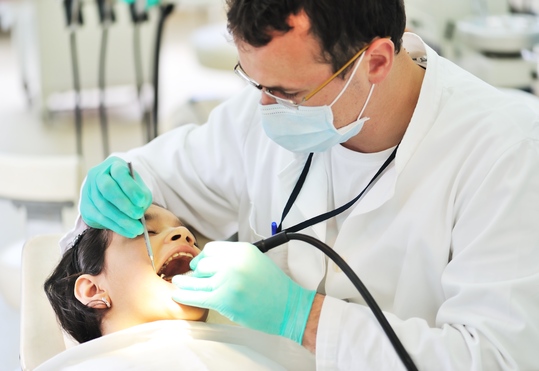Many people find that just getting a basic check up from their dentist can be a nerve-wracking experience, so the thought of having an oral surgery can cause a lot of anxiety. This is just one of the reasons, why sleep dentistry, or sedation, are used by dentists. While some may be uneasy with the thought of sleep dentistry, rest assure that it is a very safe process, and can make the procedure a better experience for the patient.
Types of Sleep Dentistry
There are a couple of different types of sedation used for dental purposes. One is oral sedation, in which the patient is given a pill that will make them drowsy. The pill can be given in different dosages to allow for minimal to moderate sedation, depending on the needs of the individual.
Another type is inhaled sedation, in which the patient breathes in nitrous oxide, otherwise known as laughing gas. The dentist may have to give more of this throughout the procedure, depending on how quickly it wears off.
IV sedation is another option and is often used for oral surgeries. The sedative is administered through an IV, which works quickly, and more can be administered throughout the surgery as needed.
The Procedure
Here is a video courtesy of Dr. Mike Forman of Forman Dentistry, a dentist who has taken extensive additional steps to provide oral sedation that allows the patient to be relaxed, comfortable and remember little of the dental procedure to reduce anxiety. Dr. Forman explains more about the procedure of administering sedatives for oral surgery in this video.
As Dr. Forman mentions, sleep dentistry allows the patient to become completely relaxed, and often, they don’t remember their procedure at all or very little of it, which is comforting to many. It also makes doing the procedure easier for the dentist as well.
More Benefits to Sleep Dentistry
Whether you are having a routine check-up or having major oral surgery, your procedure will be more successful if you are co-operative. The relaxed sensation that moderate sedation gives a patient makes them more likely to co-operate with the dentist. This is especially true for younger children who may be kicking and screaming in fear, the mild sedation makes it easier for the dentist to properly complete a procedure. The sedation also allows the patient to feel no pain during the procedure, which is a big anxiety trigger for many.
As Dr. Forman also mentioned, sedation, even in moderation, will affect the patient mentally, so it is important that they have a someone to bring them to and from the appointment safely. The amount of sedation given to a patient will depend heavily on their weight and tolerance, and they may have to take more when they arrive at the office in order to get them perfectly relaxed and ready for their appointment.

